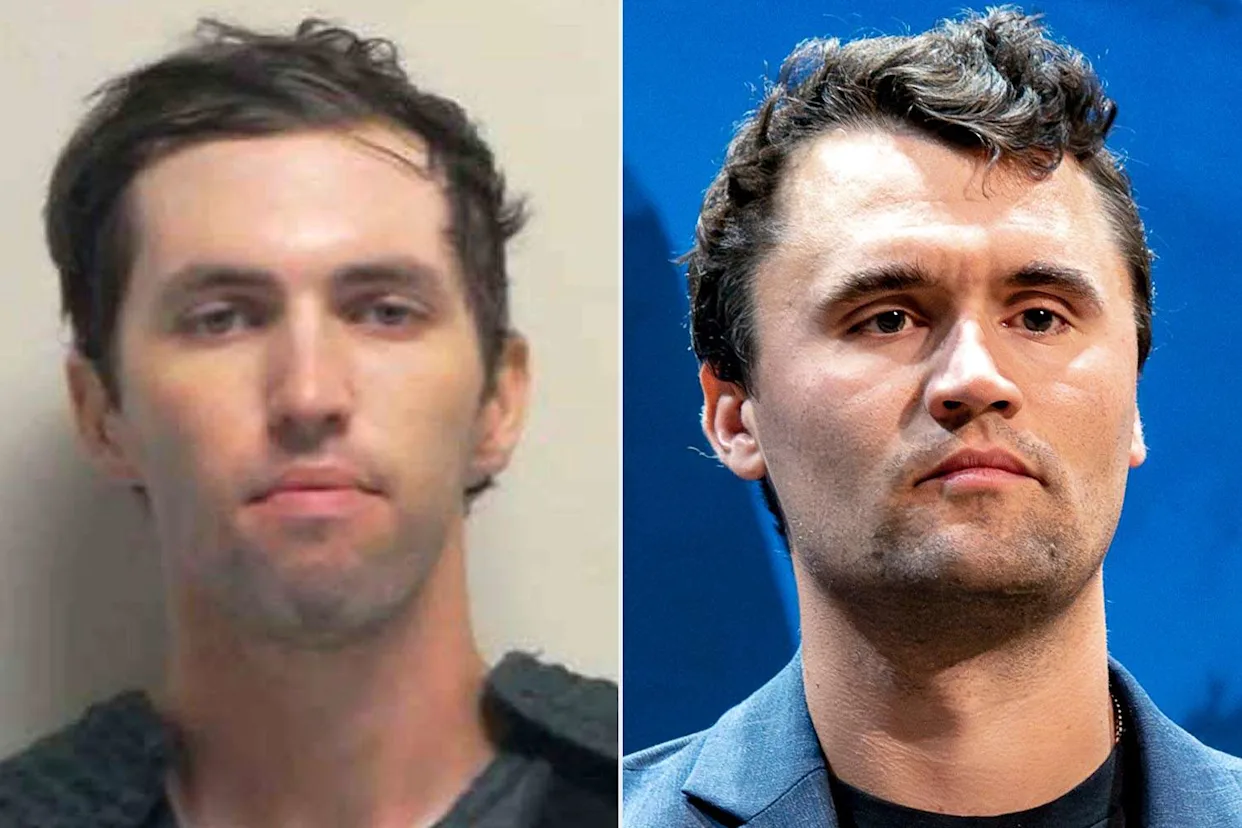The shocking revelation that the suspect in the Charlie Kirk shooting allegedly confessed on Discord has sparked widespread debate about politics, online platforms, and public safety in the United States. What began as a violent act targeting one of the most prominent conservative commentators quickly evolved into a story that exposes the vulnerabilities of digital communities and the growing risk of online radicalization. The claim that a confession was made through Discord, a platform originally intended for gamers, has brought to light serious questions about how digital conversations are monitored, how threats are identified, and how political polarization has turned toxic in today’s climate.
- The Shooting Incident and Its Immediate Fallout
- Why Discord? The Platform at the Center of the Confession
- The Culture of Digital Confessions
- The Rising Threats Against Political Figures
- The Legal Challenges of Using Digital Confessions
- Public Reaction and Partisan Divide
- Discord’s Response and Responsibility
- Expert Analysis on Online Extremism
- The Broader Social and Political Implications
- FAQs
- Who is Charlie Kirk and why is he controversial?
- What exactly did the suspect confess on Discord?
- How do investigators verify a digital confession?
- Has Discord been linked to extremism before?
- What are the legal challenges of using Discord messages in court?
- How does this case reflect broader political trends?
- Conclusion
This incident is not just about Charlie Kirk or one suspect. It is a story of how online culture intersects with real-world violence, how confessions and conversations once spoken privately are now recorded in digital form, and how the justice system is adapting to an era where critical evidence may emerge not in police interrogation rooms but in chat servers used by millions across the globe.
The Shooting Incident and Its Immediate Fallout
Charlie Kirk, the founder of Turning Point USA, is no stranger to controversy. Known for his sharp critiques of liberal policies, his defense of conservative values, and his unapologetic style of public speaking, Kirk has gained both passionate supporters and determined detractors. It was against this backdrop of political division that the shooting unfolded.
Eyewitnesses described the scene as chaotic, with people rushing for cover as the sound of gunfire rang out. Emergency services responded quickly, and while further investigation is ongoing, the initial reports confirmed that the attack was linked directly to an event associated with Kirk. This was not just another random act of violence. It appeared politically motivated, targeting a figure whose very name embodies America’s current ideological battles.
The most shocking twist came when it was revealed that the suspect allegedly confessed to the act online. The confession was not made in a courtroom, police station, or even in a letter, but in a Discord chat—an environment that has become symbolic of the digital generation’s way of interacting, debating, and, increasingly, radicalizing.
Why Discord? The Platform at the Center of the Confession
Discord began as a chat platform for gamers, offering free, high-quality voice and text communication. Over time, it expanded beyond gaming into politics, fandoms, educational groups, and private communities of all kinds. Today, Discord boasts over 200 million monthly active users, with millions of servers ranging from school study groups to global political discussions.
But with its growth came darker uses. Reports as early as 2017 highlighted extremist groups using Discord to coordinate activities, including white supremacist organizations tied to the Charlottesville rally. Discord shut down many of these servers but struggled to prevent others from forming.
In the case of the Charlie Kirk shooting suspect, Discord allegedly became the digital venue for his confession. Members of the server reported seeing messages where the suspect admitted responsibility, detailing his actions in a manner that suggested both guilt and a desire to be noticed. Screenshots of these confessions began circulating online, prompting questions about how such information could be verified and used in a legal setting.
For Discord, this was another reminder of its precarious position: a platform designed for community and free expression but often weaponized as a safe haven for dangerous rhetoric and extremist ideology.
The Culture of Digital Confessions
The suspect’s alleged confession on Discord reflects a broader phenomenon: the culture of digital confessions. Unlike traditional admissions of guilt made to friends, family, or authorities, digital confessions often take place in semi-anonymous online spaces where the confessor may seek validation, recognition, or shock value.
This is not new. Over the past decade, numerous high-profile crimes have involved suspects posting on social media or messaging platforms before, during, or after committing acts of violence. In some cases, individuals have live-streamed their actions, seeking notoriety. In others, they’ve posted manifestos or notes in digital forums.
What makes this case stand out is that the confession was not a public broadcast but a semi-private admission, shared in a chat group where the suspect may have felt a mixture of safety and exposure. By confessing online, he created a digital trail that law enforcement can now use to build a case against him, while also revealing the psychological dimensions of online behavior in the age of hyperconnectivity.
The Rising Threats Against Political Figures
The attack tied to Charlie Kirk is not an isolated incident. In fact, it fits into a troubling pattern of increasing hostility toward public officials, commentators, and activists. The U.S. Capitol Police reported that threats against members of Congress skyrocketed from about 3,900 in 2017 to over 8,000 in 2023. High-profile figures from both sides of the political spectrum have faced not only threats but also direct acts of violence.
Events like the attack on Rep. Steve Scalise in 2017, the plot to kidnap Michigan Governor Gretchen Whitmer in 2020, and the attack on Paul Pelosi in 2022 illustrate the growing risks facing political leaders. Charlie Kirk, with his national profile and controversial positions, was always at heightened risk, and the shooting underscores just how dangerous the current political climate has become.
Experts argue that the dehumanization of political opponents, coupled with the amplification of rhetoric on digital platforms, fuels this environment. The confession on Discord adds another layer of concern: that digital spaces not only incubate radicalization but also serve as stages where perpetrators seek to explain or justify their actions.
The Legal Challenges of Using Digital Confessions
One of the most fascinating aspects of this case is how the justice system will handle a confession made on Discord. Digital evidence has been increasingly used in courtrooms, from text messages in criminal cases to emails in white-collar investigations. However, confessions add a unique level of complexity.
Prosecutors will need to prove beyond doubt that the messages came from the suspect. This involves digital forensics: matching IP addresses, verifying metadata, and cross-referencing device usage. Screenshots alone are insufficient, as they can be fabricated or manipulated. Instead, forensic experts will reconstruct the digital footprint to confirm authenticity.
Defense lawyers, meanwhile, are likely to argue that the confession was taken out of context, that the account was hacked, or that the suspect was coerced into writing the messages. These defenses, while challenging, reflect the evolving strategies of legal battles in the age of digital communication.
The outcome of this case may set an important precedent for how digital confessions are treated in U.S. courts, shaping the legal landscape for years to come.
Public Reaction and Partisan Divide
The public reaction to the Charlie Kirk shooting and the suspect’s alleged confession on Discord has been deeply polarized. Conservative voices quickly condemned the act as an attack on free speech, framing Kirk as a victim of escalating left-wing violence. Progressive voices, while denouncing the attack, focused on broader systemic issues such as gun control and online radicalization.
On social media, hashtags tied to Charlie Kirk and Discord trended for days, with debates raging about responsibility. Was this an act of one disturbed individual, or a symptom of deeper political and cultural problems? Should Discord be blamed for hosting the confession, or should responsibility fall solely on the suspect?
This polarized response mirrors the broader state of American discourse, where even acts of violence are interpreted through partisan lenses. The inability to find common ground even on issues of public safety reveals just how fractured the nation has become.
Discord’s Response and Responsibility
In the wake of the news, attention quickly turned to Discord’s responsibility. The company has repeatedly emphasized its commitment to safety, noting that it has removed thousands of extremist servers and invested heavily in moderation technology. Still, the private nature of many servers makes comprehensive oversight nearly impossible.
Critics argue that Discord, like other tech platforms, profits from growth while failing to adequately police harmful activity. Supporters counter that privacy is central to the platform’s success, and excessive monitoring would alienate legitimate users.
In official statements, Discord has promised to cooperate fully with law enforcement and reaffirmed its zero-tolerance policy toward violence. But for many observers, the question remains: how many more incidents will it take before platforms are held accountable for their role in enabling harmful behavior?
Expert Analysis on Online Extremism
Experts in extremism and digital culture view the case as a grim but predictable development. Dr. J.M. Berger, an analyst of online radicalization, has described digital spaces like Discord as “amplifiers” of extremist ideology, where individuals who might never act alone find encouragement and validation from online peers.
Similarly, cybersecurity experts warn that platforms like Discord are difficult to monitor due to encryption, private servers, and the sheer scale of daily messages exchanged. Law enforcement agencies face the challenge of balancing civil liberties with the need to prevent violence. Overreach could spark accusations of surveillance and censorship, while inaction risks more tragedies.
The Broader Social and Political Implications
The alleged confession by the Charlie Kirk shooting suspect forces society to confront difficult truths. The digital age has blurred the boundaries between online rhetoric and offline actions. Confessions that once might have been whispered in secrecy are now documented in chat logs. Radicalization that once required physical contact now unfolds in virtual communities.
For political figures, the case reinforces the urgent need for stronger security measures. For tech companies, it underscores the responsibility of moderating content without undermining privacy. For society at large, it highlights the danger of unchecked political polarization and the violence it can inspire.
FAQs
Who is Charlie Kirk and why is he controversial?
Charlie Kirk is a conservative activist, author, and founder of Turning Point USA. He is known for his strong defense of conservative values and his outspoken critiques of progressive politics. His high-profile speeches and media appearances have made him a polarizing figure in American political life.
What exactly did the suspect confess on Discord?
Reports suggest that the suspect admitted responsibility for the shooting in a Discord chat, describing details that investigators believe point directly to his involvement. The confession has not yet been fully released to the public due to the ongoing investigation.
How do investigators verify a digital confession?
Law enforcement relies on digital forensics, including IP address tracing, device analysis, and metadata verification, to confirm whether online statements can be attributed to a suspect. Screenshots alone are not sufficient in court without additional supporting evidence.
Has Discord been linked to extremism before?
Yes. Discord has faced criticism for hosting extremist groups, especially around the 2017 Charlottesville rally. Although the platform has since removed many such servers, it continues to face challenges in preventing its use for harmful purposes.
What are the legal challenges of using Discord messages in court?
The main challenges include proving authenticity, countering claims of hacking or impersonation, and ensuring that the confession meets admissibility standards. Courts will need clear forensic evidence to accept Discord messages as reliable confessions.
How does this case reflect broader political trends?
The shooting and confession highlight the dangerous mix of political polarization, online radicalization, and gun violence in the U.S. It shows how digital platforms are now central to both the spread of extremist ideas and the evidence used to prosecute related crimes.
Conclusion
The case of the Charlie Kirk shooting suspect allegedly confessing on Discord is more than a shocking headline—it is a microcosm of America’s most urgent challenges. Political polarization, online radicalization, gun violence, and the responsibilities of tech platforms all converge in this story. The fact that a suspect could allegedly confess to such a crime in an online chatroom illustrates both the dangers and the opportunities of the digital age: dangers in how easily toxic ideas spread, and opportunities in how digital evidence can help bring perpetrators to justice.
For Charlie Kirk, the incident is a chilling reminder of the risks faced by outspoken political figures. For the public, it is a wake-up call about the escalating violence that threatens democracy itself. For Discord and other platforms, it is yet another challenge in balancing freedom, privacy, and safety.







